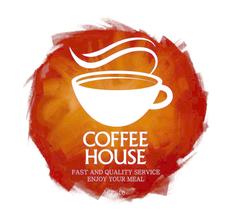Description of Flavor of Tieka Coffee in Yunnan Province, China. Introduction to manors in taste producing areas.
In the south and west of Yunnan, Pu 'er, Xishuangbanna, Wenshan, Baoshan, Dehong, Lincang and other places are the distribution areas of Yunnan Arabica coffee cultivation. As of January 1, 2012, according to the comprehensive survey of Yunnan Province, the coffee planting area in Yunnan has exceeded 800,000 mu, and it is expected that the coffee bean output will exceed 55,000 tons in this period. For the future, the blueprints of state governments in Yunnan have also been drawn: Dehong plans to expand the coffee planting area from the current 100,000 mu to 200,000 mu in the next few years; Lincang will expand the existing 20,000 mu coffee forest by 10 times to 200,000 mu in the "Twelfth Five-Year Plan"; Pu 'er also plans to expand the coffee forest from 220,000 mu to 600,000 mu. Other suitable coffee planting areas such as Baoshan and Xishuangbanna are also planning to expand the planting scale.
Dehong: It has the laudatory name of "the hometown of Chinese coffee". As of 2011, a total of 120,900 mu of coffee planting area has been developed in the whole prefecture, accounting for 30% of the coffee planting area in China. In the next three years, the coffee planting area in Dehong Prefecture will reach 200,000 mu. The coffee planting altitude in Dehong Prefecture is above 1000 meters, of which 30,000 mu is planted on the mountain area above 1600 meters above sea level. In addition, the coffee planted in Dehong Prefecture mainly uses organic fertilizer and organic pesticide, so the coffee produced is of high quality and is one of the rare high-quality coffee producing places in the world.
Baoshan: Baoshan coffee planting began in the mid-1950s, the first coffee seedlings were introduced from Southeast Asia by the late patriotic overseas Chinese Mr. Liang Jinshan. The local famous Lujiangba Arabica coffee is of excellent quality. As early as the late 1950s, it was rated first class in London, England. In recent years, with the expansion of international trade, Lujiangba Arabica coffee is more famous. Europe and America, Arab countries, especially Britain, the United States, Egypt, Hong Kong and Macao merchants are regarded as coffee top-grade, products in short supply. In December 2010, the General Administration of Quality Supervision, Inspection and Quarantine of the People's Republic of China decided to implement the national geographical indication product protection for Baoshan Arabica Coffee.
Lincang: Lincang has become the focus of many coffee enterprises due to its unique geographical location and climatic conditions. It has successively established 200 mu and 100 mu high-quality coffee seedling bases in Mengding Town and Lincang Xingfu Farm of Gengma Autonomous County in the city, and carried out coffee planting in Gengma, Zhenkang, Yun County, Cangyuan and Yongde. Coffee planting in China is concentrated in Yunnan Province and Hainan Province. Yunnan has a large output, with an annual output of about 26,000 tons in recent years, accounting for 90% of the national output. Yunnan coffee is said to have been handed down by the French 70 or 80 years ago. The main production variety is Arabica Arabica, that is, the so-called Arabica coffee, commonly known as Yunnan Arabica coffee. Yunnan's high-quality geographical climate conditions provide good conditions for coffee growth. The planting areas are Lincang, Baoshan, Simao, Xishuangbanna, Dehong and other prefectures. Yunnan natural conditions and Colombia are very similar, namely low latitude, high altitude, temperature difference between day and night, produced by cup quality analysis, coffee belongs to alcohol flavor, its quality taste similar to Colombia coffee.
However, due to various reasons, Yunnan coffee industry development speed is not fast, Yunnan coffee is mainly exported in the form of raw materials, exports in 2006 about 15,000 tons. More than 60% of the raw materials are purchased by Nestle and Max every year, and Starbucks and Amway have also joined the ranks of acquisitions in recent years.
Due to the lack of deep processing and marketing, Yunnan coffee has a low reputation and is locked in the mountains. It is believed that with the in-depth development of Yunnan coffee industry, the rising demand of domestic coffee market and the efforts of the government and enterprises, Yunnan coffee will usher in a new development period.

Important Notice :
前街咖啡 FrontStreet Coffee has moved to new addredd:
FrontStreet Coffee Address: 315,Donghua East Road,GuangZhou
Tel:020 38364473
- Prev

Dominica Santo Domingo Coffee Flavor description Manor
The name Dominica, which originally means Sunday, was taken by Columbus when he first came to America to discover it, because it happened to be a Sunday. Today, this seemingly random name is quite far-sighted, because a good cup of coffee can bring people a relaxed and pleasant mood. The most distinctive feature of the introduction of Dominican coffee is freshness and elegance.
- Next

Yerga Sheffield Coffee Flavor Description Grindness Variety Features Taste Introduction
Yegashefi's coffee trees were cultivated by European monks (a bit like Belgian monks growing wheat to brew beer) and later by farmers or cooperatives. Yega Shefi is actually constructed by surrounding coffee communities or cooperatives, including Idido, Harfusa, Hama, and Biloa near Misty Valley, all of which use water washing.
Related
- Detailed explanation of Jadeite planting Land in Panamanian Jadeite Manor introduction to the grading system of Jadeite competitive bidding, Red bid, Green bid and Rose Summer
- Story of Coffee planting in Brenka region of Costa Rica Stonehenge Manor anaerobic heavy honey treatment of flavor mouth
- What's on the barrel of Blue Mountain Coffee beans?
- Can American coffee also pull flowers? How to use hot American style to pull out a good-looking pattern?
- Can you make a cold extract with coffee beans? What is the right proportion for cold-extracted coffee formula?
- Indonesian PWN Gold Mandrine Coffee Origin Features Flavor How to Chong? Mandolin coffee is American.
- A brief introduction to the flavor characteristics of Brazilian yellow bourbon coffee beans
- What is the effect of different water quality on the flavor of cold-extracted coffee? What kind of water is best for brewing coffee?
- Why do you think of Rose Summer whenever you mention Panamanian coffee?
- Introduction to the characteristics of authentic blue mountain coffee bean producing areas? What is the CIB Coffee Authority in Jamaica?

